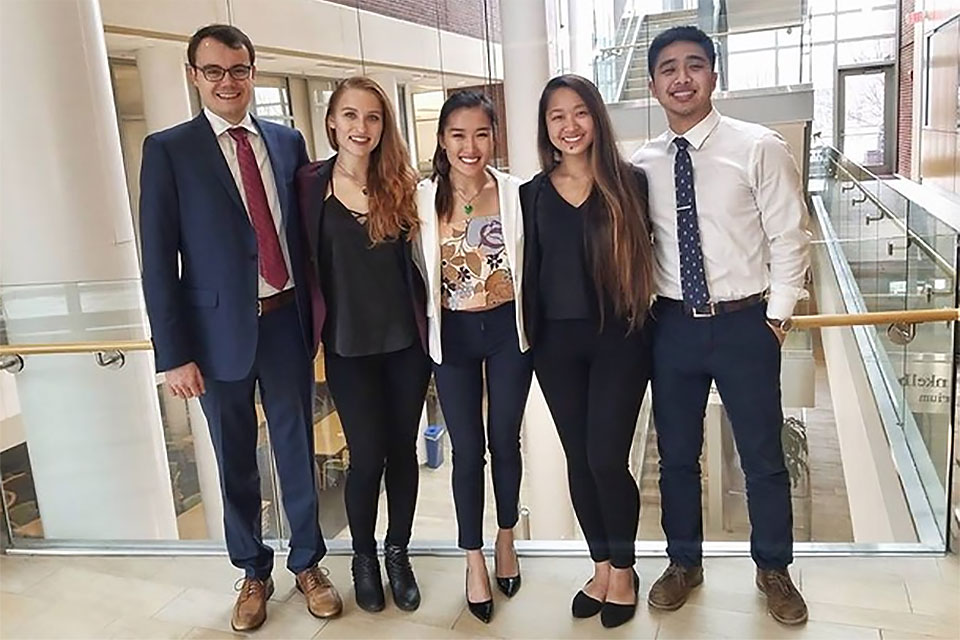SOP Teams With College Park on FDA Drug Regulatory Science Initiative
The University of Maryland has assembled an interprofessional team of research scientists from its campuses in Baltimore and College Park for a center of excellence.
By Steve Berberich
November 3, 2011
The University of Maryland has established a Center of Excellence in Regulatory Science and Innovation (CERSI), funded by an initial $1 million grant from the U.S. Food and Drug Administration (FDA), which is potentially part of a three-year funding program for improving drug development and manufacturing. The FDA is funding a sister CERSI at Georgetown University.
“The agency chose to pilot the CERSIs in the Washington, D.C. area to allow for the greatest possible face-to-face collaboration and training with FDA staff,” says FDA Chief Scientist Jesse Goodman, MD, MPH. “Working together with other innovators and industry, we will promote innovative approaches to speed and improve the development of products to help people in need and to support our biotech economy,” Goodman said.
The University of Maryland has assembled an interprofessional team of research scientists from its campuses in Baltimore and College Park for its CERSI. Working closely with FDA scientists, CERSI researchers will assist the FDA in driving innovation in medical product development as well as in advancing laboratory, population, behavioral, and manufacturing sciences.
“Collectively, FDA, industry, and academic scientists all recognize the need for new tools in drug discovery and development, such as a series of new laboratory tests or software, in order to anticipate safety and efficacy of drugs in development,” says James Polli, PhD, the Shangraw/Noxell Endowed Chair in Pharmaceutical Sciences at the University of Maryland School of Pharmacy. Polli and Willam Bentley, PhD, the Robert E. Fischell Distinguished Professor of Engineering and founding chair of the Fischell Department of Bioengineering, are the principal investigators of the University of Maryland CERSI.
The University of Maryland center will focus on improving preclinical assessments of safety and efficacy, ensuring readiness to evaluate innovative and emerging technologies, and harnessing diverse data through information sciences to improve health outcomes.
Polli explains, “Everybody – regulators, industrial scientists, and academic scientists – want only safe and effective compounds to receive FDA approval. No one wants compounds that are unsafe or ineffective to receive much research, development time and money. There is a need to be more efficient in developing drugs. The process needs to be better because the costs are becoming a bigger issue. Right now, it is not as efficient as we want it to be or it needs to be.”
He said the current time and cost model of developing a drug is an average of 10 years and $1 billion. “It’s not that people don’t want to improve the process; it’s that the tools to improve aren’t always available. That’s what we intend to do through UM’s CERSI,” says Polli.
“The University of Maryland CERSI will synergistically enhance our current patient care and research initiatives and will add to our ongoing dialogue with the agency,” says Jay A. Perman, MD, president of the University of Maryland in Baltimore. “The center will benefit the FDA, University of Maryland, and other institutions engaged in the development and evaluation of medical products for diagnosing, treating, and preventing diseases. Through this partnership, we have created strong collaborations with our colleagues at the University of Maryland, College Park that will transform the training and research opportunities for all of the UM-CERSI participants.”
Bentley adds, “Maryland’s CERSI will draw from University of Maryland expertise on both the College Park and Baltimore campuses and create new mechanisms for scientific exchange, education and training, and regulatory science research.”
“This innovative new center will have a great impact in improving the lives of Americans,” says Patrick O’Shea, vice president for research at the University of Maryland, College Park. “The University of Maryland’s researchers will help the FDA transform the way that drugs and devices are evaluated and reviewed, and influence how they are designed, developed, manufactured, and brought to market.”
“Our new Center for Regulatory Science and Innovation will play a critical role in expanding the application of regulatory sciences and the evaluation of medications, biologics, and devices,” says Natalie D. Eddington, PhD, FAAPS, professor and dean of the School of Pharmacy. “The University of Maryland School of Pharmacy has long focused on applying its unique research expertise to the challenges inherent in the process of drug design and manufacturing. Historically, we have played a significant role in developing scientific basis for FDA guidances. The CERSI builds upon this work by providing an infrastructure to allow for a scientific exchange and dissemination of results to the public. Our hope is that by fostering collaboration between academia, industry, and the government in a way that has never been done before, that patients will benefit from improved and more efficient processes for the discovery and approval of medications, biologics, and medical devices.”



